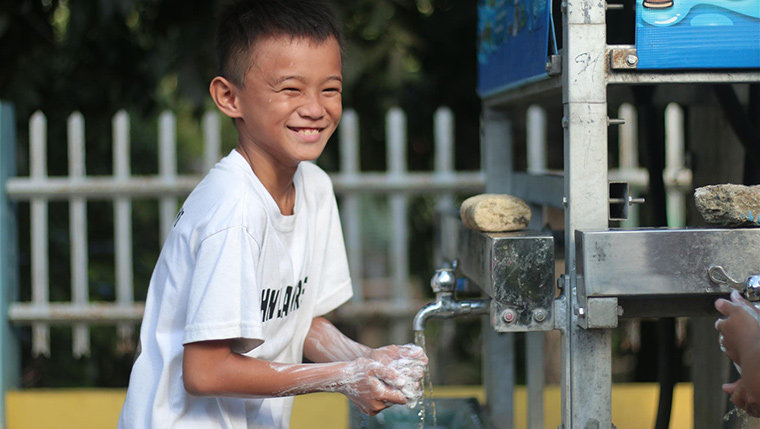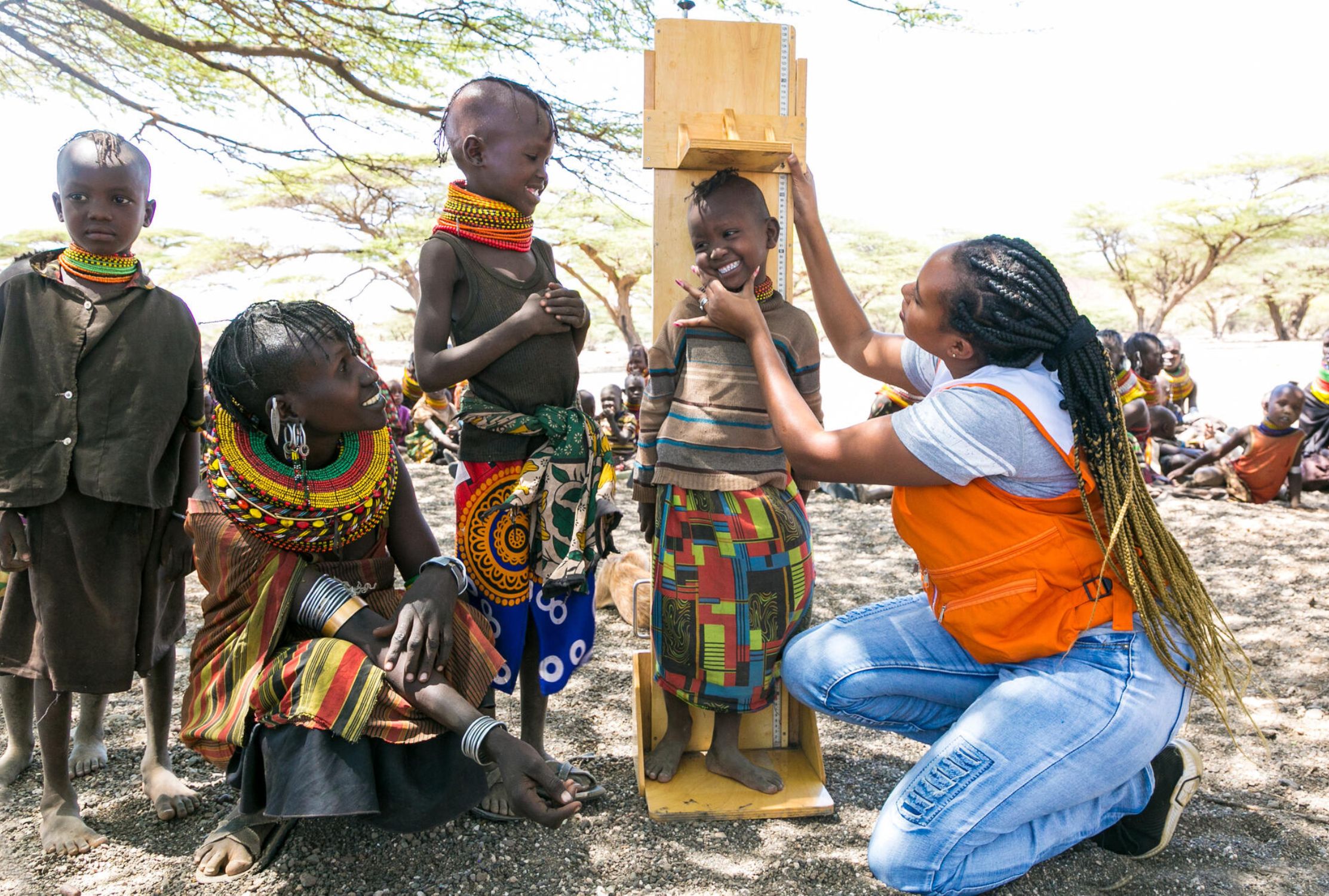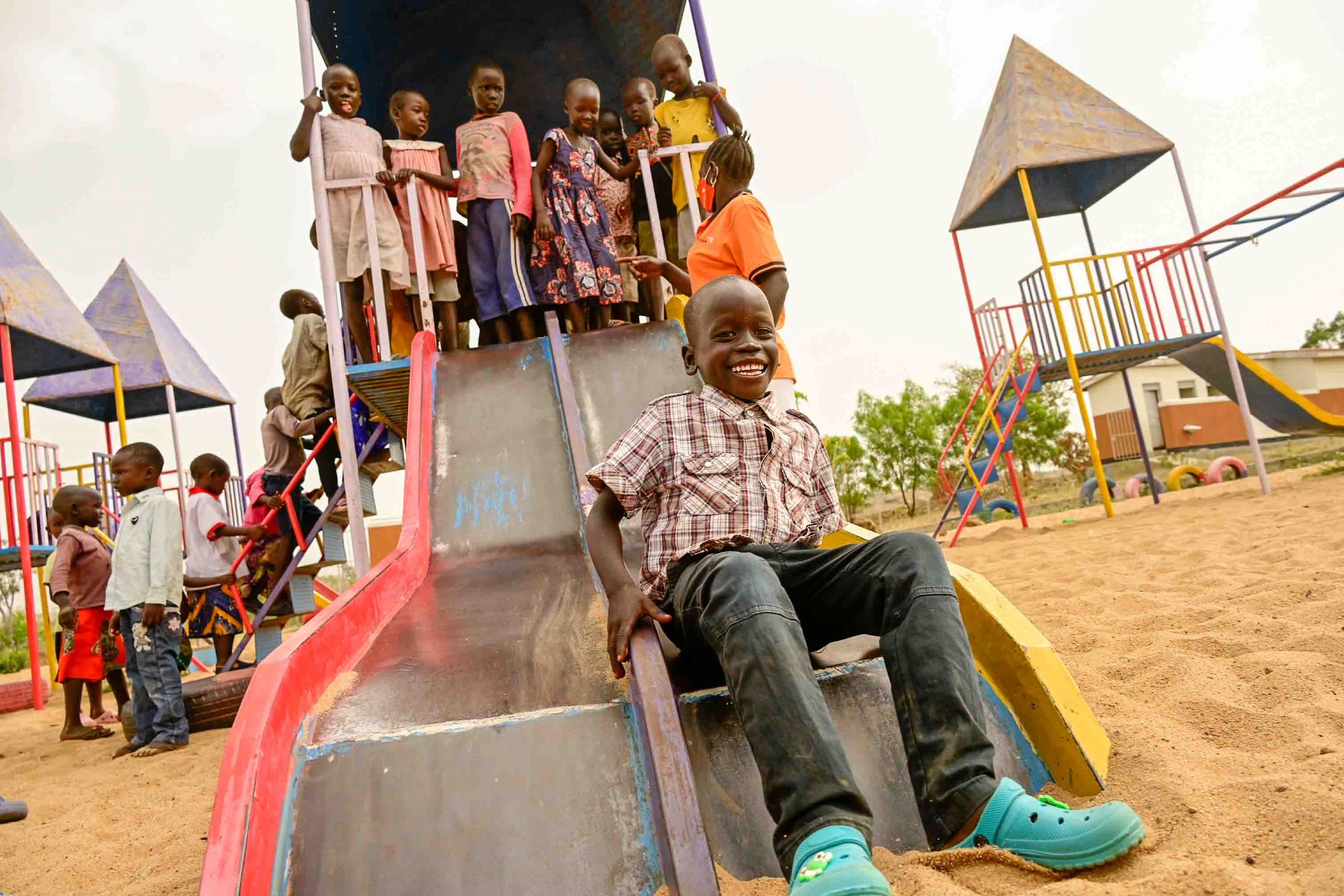
Coronavirus: The expert view from the Philippines
Our Philippines National Director talks about their situation and response
Over the coming weeks and months, our experts will be examining what the coronavirus pandemic means for the world's poorest communities, what we can do to slow it down and how we can support health workers, communities, families and children.
First up, our National Director in the Philippines, Rommel Fuerte
The COVID-19 global pandemic declared by the World Health Organisation has fast become overwhelming as the number of cases and deaths grow worldwide.
At the time of writing, there are more than 210,000 confirmed cases and over 9,000 deaths globally. Here in the Philippines, 217 cases have been confirmed and 17 people have sadly died after contracting the virus.
These are not just statistics, but the real lives of people lost and threatened by the virus, which is inflicting fear and uncertainty on us all.
Children are not exempted from coronavirus
The evidence suggests that the elderly are more vulnerable to coronavirus, but children are not immune. On March 15, the Philippines health department reported that a 13-year-old girl had tested positive for coronavirus; the youngest confirmed case in our country. Although children seem to be less susceptible to the virus, that case only confirmed that children are not spared. This pandemic has for many of us become more alarming and personal, faced with the possibly of losing our sons and daughters, our little nephews and nieces, and the generation of tomorrow as a result of this dreaded outbreak.
And it’s not just that they are under threat of contracting the virus. Children are especially vulnerable to the impacts of this pandemic, particularly those living in the most poverty-stricken communities. Families will struggle with government lockdowns that prevent parents from earning a living. Some children will lose a parent or caregiver because of the disease. School closures, home quarantines, and psychological distress will all have a negative impact on children’s emotional, social and physical well-being.
And for a child, this intimidating outbreak is more than meets the eye. It has become, for them, everything.
See this video of 17-year-old Jet Mark, a World Vision sponsored child, who shares what it’s like to live in quarantine:
Our response
World Vision Philippines is committed to helping the government lift up children and young people during this national health crisis, investing in their protection and creating a better future for them.
Health and Sanitation
In the many communities we work with across the country, we are ensuring that children and families are protected and informed through intensified awareness and behaviour campaigns on proper handwashing and hygiene practices.
But in the long term, experts have highlighted the importance of having a strong immune system in fighting diseases including the new virus COVID-19.
We have to be intentional in prioritising child well-being programs that seek to address acute malnutrition. Access to sanitation, hygiene, and safe drinking water, both in development and emergency contexts, is critical to reduce the public health risk, especially among children. During disasters and conflict, affected populations are vulnerable to diseases such as cholera, and diarrhoea, so Integrated Water, Sanitation, and Hygiene (IWASH) facilities should be key. How can we fight a deadly virus like COVID-19 if many of our schools and poor communities have no access to clean drinking water to start with?
Disrupted Education
The suspension of classes in Metro Manila and other provinces has been introduced to slow down the spread of the virus. The challenge now is to ensure that children’s education is not compromised by class suspensions.
Virtual programmes are vital to encourage children to continue learning while not able to attend school. Initiatives like World Vision's “Brigada Pagbasa”, in partnership with The Department of Education, is helping out-of-school children learn to read through age-appropriate learning programs.
Well-being and protection of children
During emergencies, it is common and normal for both adults and children to feel sad, nervous, upset, confused, afraid, or irritable. Talking to someone trusted like family members or friends can help with this. When dealing with children, we must be calm, avoid panicking, and provide correct information. Being clear about why it’s important to stay at home, wash our hands and observe other safety measures is crucial.
When children feel safe, free and comfortable in their environment, they are able to enjoy life in all its fullness.
Working and surviving together
World Vision Philippines will continue to work with the national government agencies and local government units to mitigate the possible secondary impacts of this pandemic on children. Our support and cooperation – rather than panic – is what is needed for us to overcome this huge challenge we are confronted with. We are one for dear life, one for a healthier and safer tomorrow, one for children!



